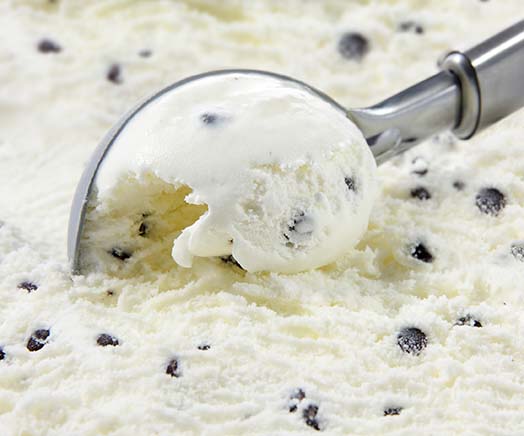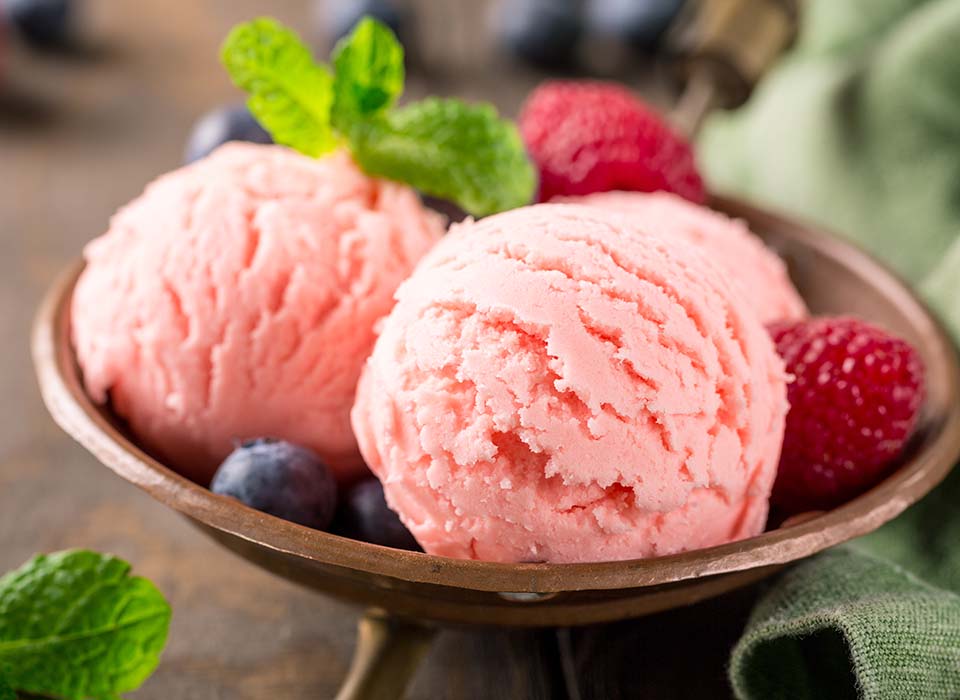Successful fat-reduction in yoghurts with natural ingredients
Reducing the fat content in yoghurt will risk a loss of mouthfeel, a less thick texture, difficulties in maintaining good gloss and colour, a less smooth appearance and a less appealing taste. Pectin, inulin, and rice starch are excellent and natural ingredients to compensate for the reduced fat and provide viscosity, texture, stability, and better mouthfeel in fat-reduced fermented products such as yoghurt.
Alsiano Solutions.
Orafti inulin in fat-reduced yoghurt
Inulin improves mouthfeel in fat reduced fermented dairy products such as yoghurt
Inulin is based on inulin-type fructans, which are fibres that occur naturally in the chicory root. The “invisible” inulin fibre is an ideal fat replacer helping create a creamy taste and mouthfeel very similar to fat.
Orafti inulin is a high-performance inulin powder which is particularly suited for fat replacement at high processing temperatures and therefore excellent for pasteurised fermented dairy products such as yoghurt. With Orafti® inulin it is possible to reduce the calorie content in the finished products without affecting taste and texture. The inulin is excellent for improving the creamy mouthfeel in fat reduced yoghurt.
Orafti® inulin can be used solely or in combination with native Remyline rice starch (see next tab) to get an even creamier texture and pleasant mouthfeel in the fat-reduced yoghurt.
Labelling:
Inulin / chicory root fibre
Orafti inulin benefits
- Improves body and mouthfeel, for an excellent flavour profile.
- Reduces the calorie value of the product without comprising taste or texture.
- Improves the stability of dairy mousses and foams.
Rice starch for improvement of texture in fat-reduced yoghurt
The very small granule size of rice starch makes it a perfect texturiser in fat-reduced dairy products
Remyline is a natural rice starch, which is excellent for fat reduction in yoghurt. Rice starches are natural texturisers and are characterized by small granules range from 2-8 µ – they are much smaller than those from cereals, potatoes, and corn. The granule size is comparable to that of fat globules. Rice starch can therefore be used as a natural fat replacer, and mimic a full, fatty, or creamy mouthfeel.
The good texturising properties of rice starch provide a nice and creamy fat-reduced yoghurt. Additional important benefits of using rice starch for fat-reduction in dairy products are good product stability, improved glossiness, and clean taste.
Also in low-fat drinking yoghurt, rice starch provides a smooth texture and a full, creamy palate. In diary fruit preparations rice starch generates stability and unique smoothness whilst maintaining a rich fruity flavour.
About Remyline rice starch
Rice starch creates texture without affecting the end product’s taste or colour. Remyline rice starch is manufactured from waxy polished broken rice. It is a clean label, non-allergenic ingredient and is not derived from genetically modified organisms (GMO). Remyline rice starch is a fine white powder with a neutral odour and taste.
Labelling:
Rice starch
Rice starch benefits
- Very small rice starch granules
- Creamy and smooth texture
- Very good stability (pH, process & shelf-life)
- Clean taste & colour
- Allergen- & dairy-free
Pectin in fat-reduced yoghurt products
Pectin improves mouthfeel and stability in fat-reduced drinking yoghurts and dairy fruit preparations
Pectin is an excellent ingredient for delivering stability, mouthfeel and good flavour release in low pH protein beverages such as drinking yoghurt and acid milk juice drinks.
High Methoxyl (HM) pectin is uniquely suitable for stabilising acid milk drinks such as drinkable yoghurt. Pectin protects the casein protein thus hindering formation of sediment that would otherwise form at the bottom of the beverage.
HM pectins are also an ideal viscosity delivering hydrocolloid for low calorie, low fat or low sugar beverages to compensate for the low mouthfeel caused by the lack of fat or sugar. In addition, pectin provides texture, structure, pumpability, suspension and viscosity to short shelflife set and stirred yoghurt, and to yoghurt fruit preparations.
Facts about pectin
Pectin is mainly extracted from fresh citrus peels and orange pomace, but also from sugar beet pulp. Pectin delivers viscosity, gelling, structure, texture, physical stability and protein stability in a wide variety of food applications. There are three main types of pectin products, which are divided by their degree of methylation: High Methoxyl (HM)Pectin, Low Methoxyl (LM) Pectin and Low Methoxyl Amidated (LMA) Pectin. The methylation degree influences their specific functional properties. Pectin is the most acid stable natural hydrocolloid and is stable in a pH range of 2.5-5.0. Pectin is a 100% soluble fibre. They are prebiotics and have many proven health benefits.
Labelling:
Pectin, E440
Pectin benefits
Drinking yoghurts/fruit milk smoothies:
- Stability through protein protection during fermentation and pasteurisation
- Reduction of sedimentation of protein
- Mouthfeel
- Flavour release
Dairy desserts/cup yoghurts:
- Clean, non-sticky texture and structure
Contact.
Please call or email us for more info.
Michael Telsing
Area Sales Manager
+45 40 73 84 41
mt@alsiano.com



